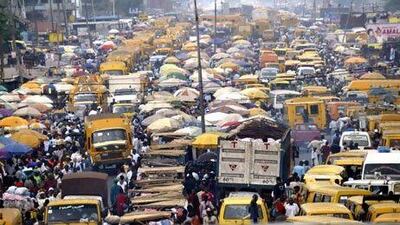China's phenomenal rise as an economic force took the world by surprise. Such shifts in the dynamics of global power can be hard to spot - but it is happening again with the rise of Africa.
The continent is set to become a priority investment destination as it moves into a similar position that China was in three decades ago when it began opening its economy to global forces.
The key elements in China's economic miracle have been an integrated market, special economic zones with incentives for foreign investors and widespread reform of the agricultural system that has freed up labour for economic development.
Africa is moving in the right direction on these key elements but there are fundamental differences with China and the evolution of Africa's economic miracle will be different.
China's lifting of 400 million people out of poverty in three decades, maintaining 10 per cent GDP growth over that period, the helter-skelter rate of urbanisation and now the unprecedented growth of the middle class mainly took the West by surprise.
Probably Africa's greatest disadvantage is in the area of perceptions. The huge deficit between the reality of Africa and the western media's obsession with negative stereotypes of conflict, famine and failed states undermine the continent's potential.
But the reasons why Africa's growing potential as an investment destination is not yet conventional wisdom are multiple. In the past few decades, Africa has taken significant strides towards more democratic governance, more transparent economic systems and eliminating some of the more crippling bureaucratic barriers to trade and investment.
The invitation of South Africa to become a new member of the Bric group of nations - along with Brazil, Russia, India and China - and the South African seat on the UN Security Council will ensure Africa has a voice in all key global forums and will accelerate reform of the UN and global financial, developmental and trade architecture.
The potential of Africa as an investment destination has been long recognised and supported both in terms of investment and soft loans by China, now the world's second-largest economy, and with strategic investments from South Africa, as well as by rising economies such as India and Turkey.
In a world increasingly concerned with food and water security, Africa is well placed to play a key role with its huge water reserves and vast tracts of arable land.
With a population approaching 1 billion, Africa represents the world's third-largest market after China (1.3 billion) and India (1.1 billion), and is rich in largely unexploited mineral and natural resources.
But there is a twist in the tale here. As the industrialised world focuses increasingly on management of the corporate carbon footprint, it may well be that the "bio-diversity footprint" - which focuses on maintaining the balance in the entire ecosystem - is even more relevant for Africa because of the greater diversity of species on the continent.
It may therefore be a priority for African countries to reconsider their growth patterns to ensure the preservation of this diversity.
South Africa's position as voice and advocate of the African cause in the shifting sands of global economic power and institutional reform now becomes even more critical as it takes its place with the Brics and the UN Security Council.
The notion that the much smaller South African economy could join the four huge economies in Bric would have been unthinkable a decade ago.
As the shift in global economic power gains momentum, South Africa's trade is moving eastwards and southwards in what has become a clear pattern that reflects the global trend and is helping to drive it.
While attending a UN conference on trade and investment in Beijing last September, the South African trade and industry minister Rob Davies said South Africa would prioritise China and India as export destinations of choice.
Two years ago China replaced the US as South Africa's largest trading partner. In state visits to China and Russia, the South African president Jacob Zuma conveyed that his nation wanted to learn from both countries on how to ensure far-reaching impacts of South African mineral wealth and help the country to speed up development, create more jobs and roll back poverty.
The growing relationship with China is seen as a way of boosting South Africa's global trade and of accelerating the development of the Africa continent.
With its world-class financial sector, deep experience in African markets and an extensive corporate footprint on the African continent, South Africa is well placed to lead an African miracle similar to China's achievement over the past 30 years.
AJohn Battersby is UK country manager of the International Marketing Council of South Africa. Yingni Lu is a business development professional based in London, specialising in clean technology and renewable energy. She writes for the online magazine ReconnectAfrica.

